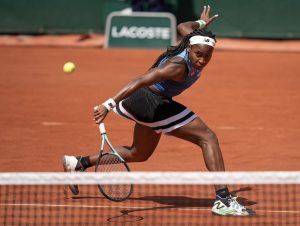You might not know Arklon Huertas del Pino. The Peruvian currently sits at world #586 in singles and holds the #337 spot in doubles. In other words, he is largely confined to the outskirts of the tennis universe. But with the tennis season suspended thanks to the global coronavirus pandemic, Huertas del Pino found himself in the news cycle after he was handed a two-year suspension for “doping”.
And if you are just skimming the news and not looking into the matter closely, that might seem fair enough. But, upon closer review, the two-year ban looks not only to be unfair, but also to be an unjustified abuse of authority. In December, the Peruvian received a provisional suspension after testing positive for a prohibited substance at a tournament in Lima, Peru. But it wasn’t Sharapova’s meldonium or the commonly abused anabolic steroids Huertas del Pino ingested. It was cannabis.
And to make matters worse, the ITF readily admitted that Huertas del Pino had not intentionally consumed cannabis. Instead, the ITF found that Huertas del Pino was significantly at fault and negligent. But, even so, it wasn’t deliberate. But their judgement ignored the research conducted by Ivan Waddington, Ask Vest Christiansen, John Gleaves, John Hoberman and Verner Moller which showed that drugs such as cannabis do not help one’s athletic performance.
Jeff Moag of The Inertia website talks about how cannabinoids can help pain relief and that pain relief doesn’t have such a high risk of side effects. But is relieving pain even performance enhancing? Moag quoted gold medallist snowboarder Ross Rebagliati, who had to go through significant personal turmoil after a test found marijuana in his system, as saying ‘a banana is performance enhancing. Water is performance-enhancing’.
This should really make people think about cannabinoids in sport in a different light. Moag brings up the point that weed ‘won’t make you jump out of the blocs like disgraced sprinter Ben Johnson on steroids [or] get you to the top of Alpe d’Huez like Lance Armstrong on EPO’. It might help with performance, but not in the traditional sense that we picture when we think about performance enhancing drugs.
Indeed, the reason that cannabinoids are banned is not because of their performance enhancing capabilities at all. As both the authors of that research and Moag state, the reason for the ban is based on the ‘spirit of sport’. Quite frankly, this can’t be seen as anything other than a pretentious, patronizing stretch in an effort to somehow connect morality in sport to cannabinoids.
Of course, cannabis is still a banned substance during competition and Huertas del Pino should have known that. WADA’s full list of banned substances shows that cannabinoids (such as cannabis) are banned during competition. Huertas del Pino, theoretically, should have waited until the offseason to put himself in a position where cannabis was going to be around and potentially get into his system.
In fact, in a sport like tennis, where the offseason is so short, partaking in cannabinoids is impossible. The drug stays in the system for too long and a professional, even in the lower ranks, should have known better than to have run the risk of failing a drugs test. But given the relatively lenient punishments handed out to players who have taken substances with real performance enhancing capabilities, one can’t help but feel that Huertas del Pino is unlucky to have received a two-year ban.
Take former WTA superstar Maria Sharapova for example. She was suspended for 15 months for using meldonium (appealed down from two years), a drug that, according to officials, ‘demonstrates an increase in endurance performance of athletes, improved rehabilitation after exercise, protection against stress, and enhanced activations of central nervous system (CNS) functions’.
Chile’s Nicolas Jarry, meanwhile, who has been ranked as high as 38th in the world, received only an 11 month ban for taking one steroid and another substance that could be a steroid. While he was not judged to be negligent or significantly at fault for what happened, he still ingested a substance that gave him far more of an advantage than the marijuana consumed by Huertas del Pino.
This isn’t to say that Huertas del Pino should escape any punishment for having cannabis in his system. He clearly broke the rules and he should bear the penalty for that. However, in the grand scheme of things, especially given how other cases involving tennis players have been handled, a two-month ban would surely have been more appropriate than a two-year sentence. Particularly because for a player ranked outside the top 500 in singles and the top 300 in doubles, a two-year ban effectively closes the book on his career.
To make such a harsh decision based on unintentional consumption of cannabis, a drug that is now legal in several parts of the world, makes a mockery of drug enforcement in the sport. Huertas del Pino deserved to be a punished for what he did. But what he didn’t deserve was to have his career taken away.






